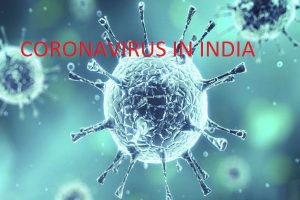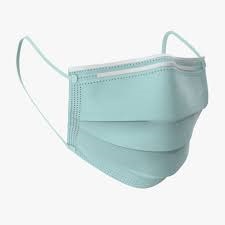Can wearing a medical mask protect you against the new coronavirus? It’s a question that many people ask themselves, including pet owners who are putting canine facial masks on their dogs.
If it’s a regular surgical facial mask, the answer is no, Dr. William Schaffner, an infectious disease specialist at Vanderbilt University in Tennessee, told Live Science.
A more specialized mask, known as an N95 respirator, can protect against the new coronavirus, also called SARS-CoV-2. The respirator is thicker than a surgical mask, but neither Schaffner nor the Centers for Disease Prevention and Control (CDC) recommend it for public use, at least not at this time.

That is because, in part, it is a challenge to put on these masks and wear them for long periods of time, he said.
Specialists receive training annually on how to properly adjust these respirators around the nose, cheeks and chin, ensuring that users do not breathe around the edges of the respirator. “When you do that, it turns out that the job of breathing, since you’re going through very thick material, is more difficult. You have to work to inhale and exhale. It’s a bit claustrophobic. It can get wet and warm in there,” said Schaffner.
“I know I can use them when I need it for about half an hour.” “But then, I have to get out of the isolation room, take it off and breathe deeply, a little calm, before I can get back in.”
While it might still be possible to hook an N95 respirator online, Schaffner advised against doing so. If too many people store respirators unnecessarily, a shortage could put the health of medical workers and those in need at risk, Schaffner said.
Surgical masks
The thinnest surgical mask is designed for surgeons, because these products do a good job of preventing pathogens from the doctor’s nose and mouth from entering the surgical field, Schaffner said.

In some Asian countries, such as Japan and China, it is not uncommon to see people with surgical masks in public to protect themselves against pathogens and contamination. But those masks don’t help much in the context of a virus, Schaffner said. “They are not designed to prevent viral particles, and they are not as tight around the nose and cheeks” as an N95 respirator, he said.
“Could they be of any use? Yes, but the effect is likely to be modest,” Schaffner said.
He noted that some people wear surgical masks because they are sick with a cold or the flu and do not want to make other people sick. But if you are sick, it is better not to go to public areas. “That is the time to stay at home,” Schaffner said.
However, people who are sick with COVID-19 should wear facial masks to reduce the risk of infection for people around them, according to the CDC. Health workers and those who “care for someone infected with COVID-19 in nearby places (at home or in a health centre)” should also wear facial masks, the CDC reported.
People who wear surgical masks should get rid of them after each use, the CDC added.
Otherwise, the best way to avoid contracting the coronavirus is, first, to postpone any trip to places with known outbreaks. You can also wash your hands well; avoid touching your eyes, nose and mouth with unwashed hands; Avoid close contact with people who are sick; and disinfect frequently touched objects and surfaces, the CDC recommends.
As for pet owners who put masks on their dogs, a dog in Hong Kong had a “weakly positive” for COVID-19, but it seems likely that the virus entered the dog’s respiratory tract while the puppy sniffed, not because The dog was really infected since he had no symptoms of the disease, the Hong Kong government reported on February 28.
Except in this case, there is no evidence that dogs can get the coronavirus, so if you are thinking about putting a mask on a pet, “you don’t need to do that,” Schaffner said.
